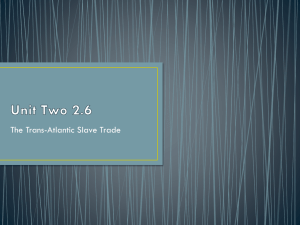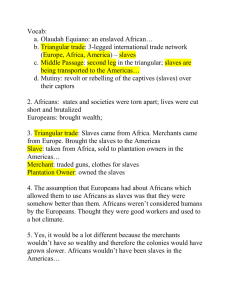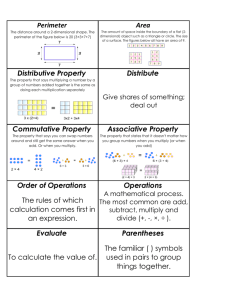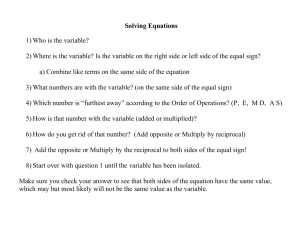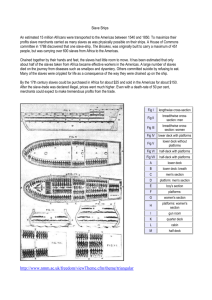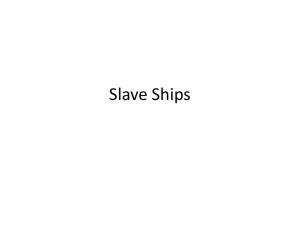dialectical journal exercise
advertisement
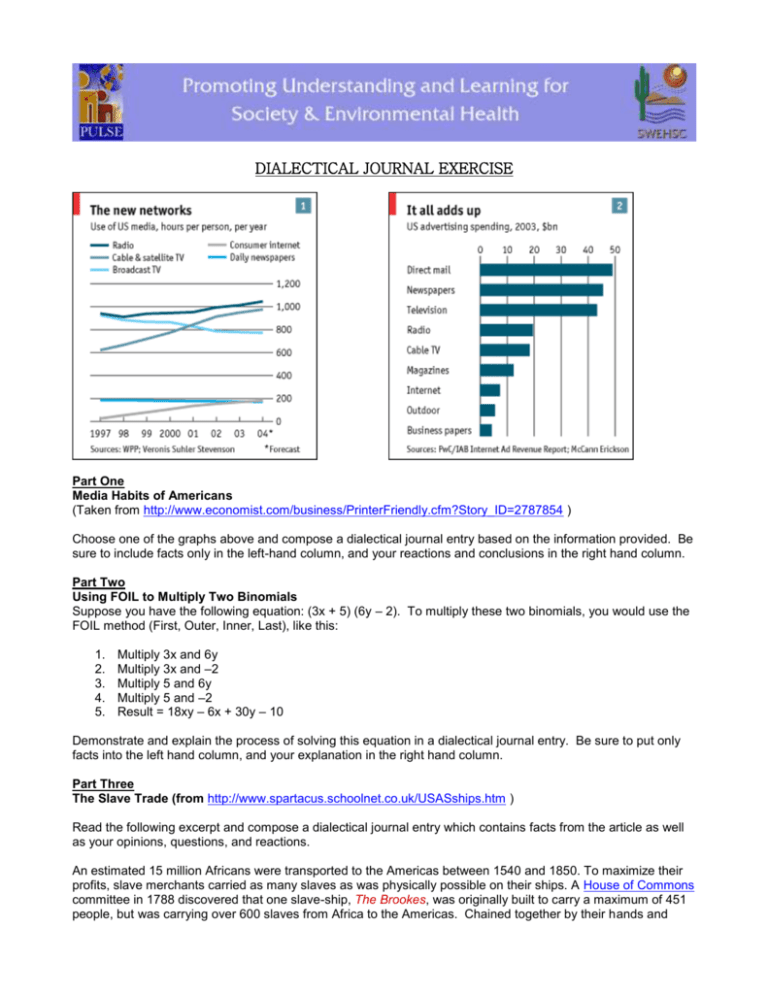
DIALECTICAL JOURNAL EXERCISE Part One Media Habits of Americans (Taken from http://www.economist.com/business/PrinterFriendly.cfm?Story_ID=2787854 ) Choose one of the graphs above and compose a dialectical journal entry based on the information provided. Be sure to include facts only in the left-hand column, and your reactions and conclusions in the right hand column. Part Two Using FOIL to Multiply Two Binomials Suppose you have the following equation: (3x + 5) (6y – 2). To multiply these two binomials, you would use the FOIL method (First, Outer, Inner, Last), like this: 1. 2. 3. 4. 5. Multiply 3x and 6y Multiply 3x and –2 Multiply 5 and 6y Multiply 5 and –2 Result = 18xy – 6x + 30y – 10 Demonstrate and explain the process of solving this equation in a dialectical journal entry. Be sure to put only facts into the left hand column, and your explanation in the right hand column. Part Three The Slave Trade (from http://www.spartacus.schoolnet.co.uk/USASships.htm ) Read the following excerpt and compose a dialectical journal entry which contains facts from the article as well as your opinions, questions, and reactions. An estimated 15 million Africans were transported to the Americas between 1540 and 1850. To maximize their profits, slave merchants carried as many slaves as was physically possible on their ships. A House of Commons committee in 1788 discovered that one slave-ship, The Brookes, was originally built to carry a maximum of 451 people, but was carrying over 600 slaves from Africa to the Americas. Chained together by their hands and feet, the slaves had little room to move. It has been estimated that only about half of the slaves taken from Africa became effective workers in the Americas. A large number of slaves died on the journey from diseases such as smallpox and dysentery. Others committed suicide by refusing to eat. Many of the slaves were crippled for life as a consequence of the way they were chained up on the ship. By the 17th century slaves could be purchased in Africa for about $25 and sold in the Americas for about $150. After the slave-trade was declared illegal, prices went much higher. Even with a death-rate of 50 per cent, merchants could expect to make tremendous profits from the trade.
